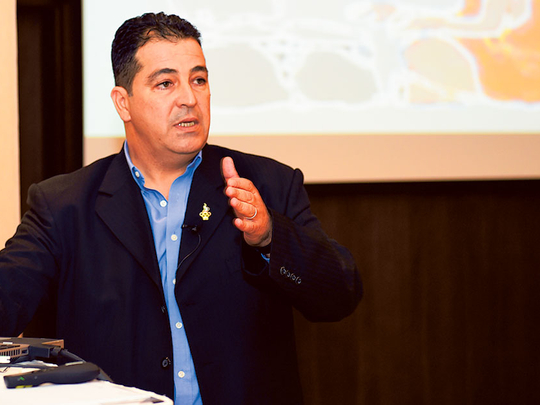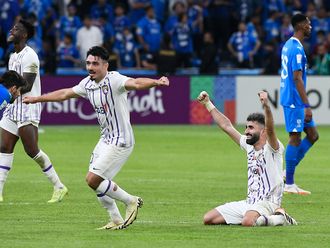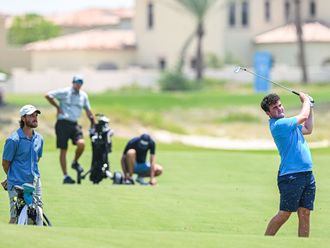
Dubai: After the 2012 London Olympics, the UAE National Olympic Committee (UAE NOC) embarked on a mission of discovering talented athletes who will be the country’s future sporting stars.
Led by Shaikh Ahmad Bin Hasher Al Maktoum, the UAE’s lone Olympic medal winner, a high performance committee of experts was hand-picked and tasked with discovering potential elite-level athletes.
As the sports physiologist and scientific expert, Dr Ramzi Bettaieb finds himself in a unique position, where he can hand-pick youngsters and set them on the path towards excellence in their chosen sport.
Last week, the third edition of the UAE School Olympic Games concluded, with more than 2,000 participating in the Olympic disciplines of athletics, swimming, fencing, archery and shooting.
A former teacher and scientific expert at the University of Tunisia connected with the Ministry of Sports, Dr. Bettaieb told Gulf News it’s a long road ahead.
GULF NEWS: What is your direction after another edition of the UAE School Olympic Games?
DR. RAMZI BETTAIEB: For the moment we are in the process of discussing a specialised camp for these champions. Last year we had the camp in Italy and this year, after considering various scenarios, such as Ramadan, we may decide to conduct the camp in Dubai instead of travelling abroad. Tentatively, the four-week camp should start on July 25 and break off in time for the opening of the schools. Nothing has been finalised, but this is the thinking at the moment.
Q. How are you assessing the results of the School Olympics?
A. This year we have carried out some physical tests on the kids at all ten training centres in the country. Some time next week we will have a meeting with the Ministry of Education to see how the past and present test results compare, considering the capacity of the kids. Even if there are kids who have not won, but have a better physique, then we will consider them for entry into the elite group of athletes. At the moment, we are awaiting scientific instruments and, once they arrive, these will further help the evaluation of the athletes.
Q. What happens next then?
A. Basically, I am working solely for the UAE School Olympic Games. Once we identify these kids then we await contact with the federations. My job is to identify talent and help them become better, with a lot of emphasis paid to their diet. I am also in a position to work with the coaches of these athletes to evaluate their trainees and better their training programmes so that the athletes continue their development. The physical testing consists of 12 parameters including weight, height and body mass index (BMI). So far we have done testing on around 5,000 athletes who have all participated in the School Olympics. We will now have a database for these athletes with the aim of adding to this database next year. This year we concentrated on the 11 to 15 years age group and in the years to come we will start looking at even younger kids.
Q. What is the way forward for the School Olympics?
A. I think all of us on the high performance committee are in favour of spreading this concept among the private schools sector in the near future. This can happen as early as this year or latest by next year. We need the engagement and involvement from a cross-section of society. And we can spot talented UAE sportspersons from the private schools sector. We should have competitions between the private and national schools. The idea would be to see who is better. The competition level will rise automatically. We have been discussing along these lines, but the ultimate decision will have to come from the federations and the UAE Ministry of Education.
Q. Is there any scope for change in the School Olympics?
A. Oh yes. Next year we will start in the middle of September and get the kids to join the UAE School Olympic Games from the start of the academic year by going directly to the ten specialised training centres. The thinking behind such a move is that these kids at the centres are the best and they need to be in a specialised atmosphere from the start, so that they continue developing in their sport over a longer period of time instead of just for a few weeks before the Games are held. Such a move will also help clubs look at the athletes and have them as part of the clubs. We need like-minded partners. We need participation from the federations, from the private sector and from the clubs as well. Kids need the encouragement, but not with money. They need to come to the sport spontaneously and, along with the teachers, they need to develop the need for sports activities.
Q. What about the role of parents?
A. Over the past three years I have noticed the change for myself. This year we had more parents who attended the finals in Sharjah. This encouragement from the parents is vital as it means we are progressing and parents are more interested in helping their kids. If the parents don’t support, then we cannot move.











